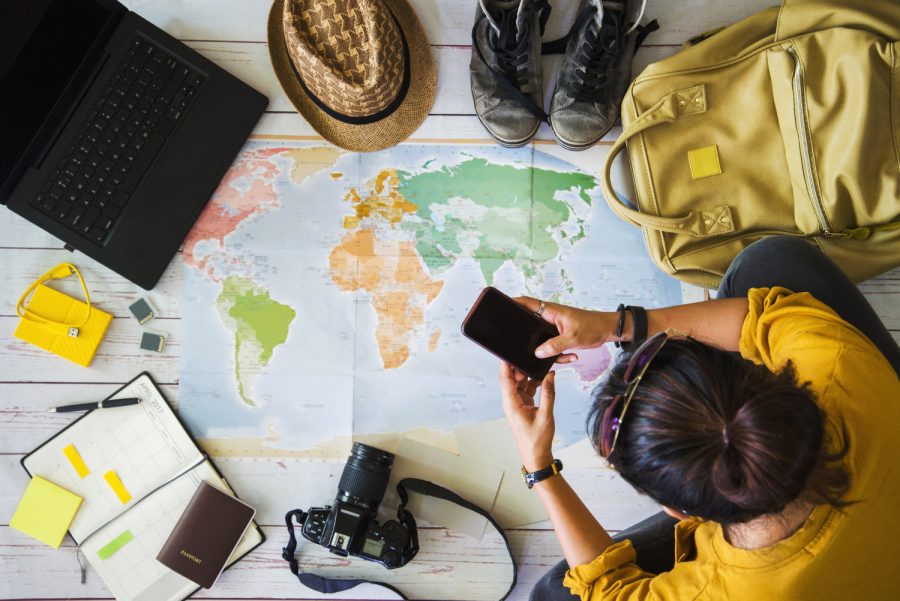Opinion | Disabilities don’t stop travel
No matter what impairments you may face, you are never unable to see the world and everything it holds.
iStock
October 1, 2020
The world is full of places to explore and people to meet — for anyone willing to leave home.
In February 2020, Cory Lee, a man with spinal muscular atrophy, traveled to Australia. This accomplished his dream of traveling to all seven continents. His story was in the media recently and can encourage others with disabilities to chase their dreams.
If quarantine ever ends, more people with disabilities should travel. With the right planning, it is possible to have an accessible trip.
Lee told CNN he researched accessible transportation options and attractions, called hotels and rental homes ahead of time, and asked for pictures to confirm accessibility. The preparations for his trips started 12 months in advance.
There are organizations which help people with disabilities travel such as Open Doors.
I’m aware traveling with a disability is a touchy subject right now. Lee’s story goes beyond travel though. It sends a message to people with disabilities no COVID-19 regulation can make irrelevant.
It is possible to live a happy and normal life. Disability should not stop you from chasing your dreams. This not only means people with physical disabilities traveling, but people with intellectual disabilities going to college.
University of Iowa’s REACH Program provides opportunities for college-aged people with disabilities to attend college and learn to live independently.
Shane Burcaw, another man with SMA, recently got married. He said people his now wife, Hannah, gets mistaken for his nurse.
It seems hard for some to imagine an inter-abled couple in a normal and happy relationship. It’s understandable disability seems depressing and abnormal to people without them but to people with, it can become a normal part of life.
We call it abnormal psychology but to people with schizophrenia, hallucinations may not be as abnormal as much as a normal part of life. According to Psychology Today, voice-hearers who don’t receive professional help tend to hear pleasant or neutral sounding voices.
From my personal experience, being a college student with a disability is no different than being a regular college student.
I have a sleep schedule nobody understands. I can’t wait for midterms to be over. I am someone you don’t want to talk to before I’ve had a cup of coffee.
I have friends and family who love me unconditionally and treat me like everyone else. I have normal hobbies and interests such as books, music, and politics. Disabilities don’t take away the need for, and sometimes don’t prevent, normal interactions, activities, and lives.
My congenital heart defect and genetic disease have not stopped me from having three jobs, pursuing an honors project in the psychology program, and making it onto the Dean’s List three out of four semesters.
Plus, not everything abnormal about disability is depressing.
I’m a conservative whose writing is valued, appreciated, and enjoyed by a liberal city, university, and publication. I see kids with cognitive delays and terminal illnesses as regular children. I would rather interview someone with a mental illness than a politician.
None of these abnormalities would be possible without my disabilities. They’re a part of my story, not something depressing. I wouldn’t trade the ability to win the Olympics with that of being a journalist.
These abnormalities also help — instead of disrupt — me chasing my dreams. A bad attitude is not the only disability but being negative does not make living with one easier.
Facing your fears and reaching your full potential does not begin with excuses not to. It starts with realizing believing you can means you are halfway there.
Columns reflect the opinions of the authors and are not necessarily those of the Editorial Board, The Daily Iowan, or other organizations in which the author may be involved.




